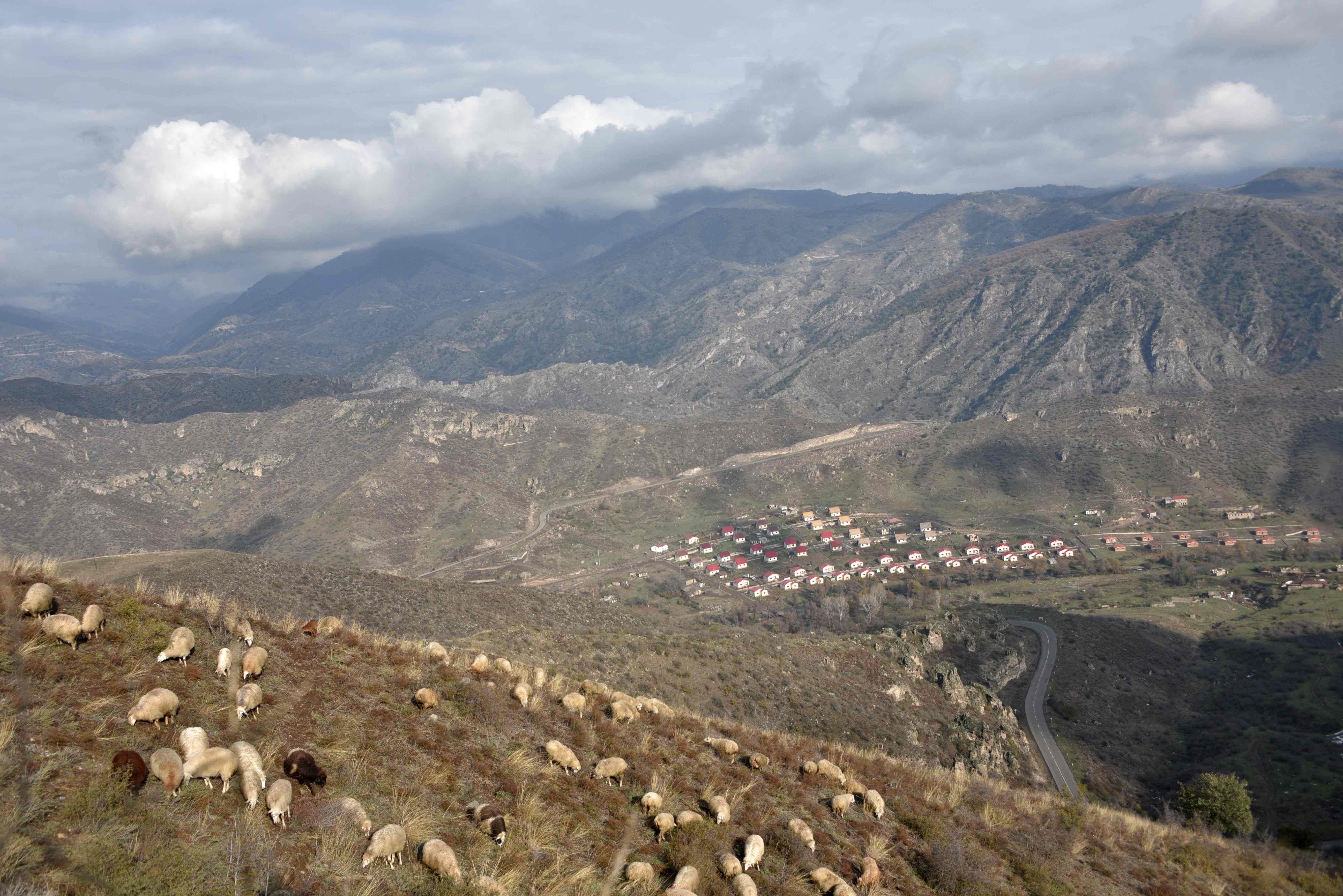Family leaves Lebanon to start new life, only to find themselves stuck in a war on Europe’s borders
The Kenejians left the rubble of Beirut to start from scratch in Nagorno-Karabakh, but chaos and destruction soon followed. By Karlos Zurutuza and Gilad Sade

Tina Kenejian has asked herself the same question thousands of times: "Should we stay, or is it better we go?"
The 26-year-old Lebanese-Armenian has lived in the village of Aghavno with her husband and two children in Nagorno-Karabakh for less than four months.
Next to a river and protected by snow-capped peaks, their new home had seemed idyllic compared to their life on the shores of the Mediterranean.
“Last year problems started to pile up Lebanon: instability, unemployment, corruption and of course, the collapse of the economy,” recalls Tina’s husband Harut. “It became impossible to support a family with my salary as a civil servant, even if I also doubled as a hairdresser.”
Discontent had been brewing in Lebanon for years, with people forced to deal with daily power cuts and a collapse in the currency, causing prices to skyrocket.
It was then during the massive nationwide protests in October 2019 when Tina and Harut finally decided to leave behind their house in Bourj Hammoud, a district in northeast Beirut which hosts a significant Armenian community, and move to Nagorno-Karabakh.
Struggling to make ends meet, the family started to look for options abroad and found that the Nagorno-Karabakh authorities were offering free houses in the enclave to diaspora Armenians.
They first travelled to Armenia, with Tina leaving in October with the children.
Just two weeks after Harut joined them, Beirut was ripped apart by a massive explosion after 2,750 tonnes of dangerously stored ammonium nitrate caught fire. Hundreds were killed, thousands hurt and some 300,000 left homeless in the 4 August blast, described as the largest non-nuclear explosion in history.
The Kenejian’s house, car and little grocery shop were totally destroyed.
“I felt we had made a lucky escape, but I also realised we had lost the little we had left behind,” says Tina.
After one month in Armenia, the family were able to move to their new home in Aghavno.
“After what we had gone through, it seemed like an ideal place to raise our children: a small and peaceful community of 60 families living together in the forest… It was simply perfect,” says Tina.
But one month later and fighting erupted between a Soviet-era Armenian army and a hi-tech blitzkrieg waged by Azerbaijan with Turkish support.
“The constant sound of shelling is terrifying and many of our neighbours have left," says Tina.
Only nine families remain in the village today, including that of Andranik Chavushyan, an Armenian from Qamishli (Syria) who serves as Aghavno´s mayor.
"We have no plan to leave anytime soon,” he says, stressing that he had requested “clarification” from the Karabakh authorities over the final status of the village.
“They told me Aghavno would remain under Armenian control but, so far, I have not yet received any written confirmation." Officials at the Nagorno Karabakh´s Ministry of Foreign Affairs told The Independent that “despite initial confusion about its final status”, Aghavno will remain under Russian peacekeepers’ control “as stated by the agreement”.
Neil Hauer, a Canadian analyst and expert on the Caucasus suggested that the Russian presence in the area reassures the Armenians, but that there´s always a big concern among them about the Azerbaijanis being only a few kilometres away.
“Many also feel that they don´t have a choice. Those who left for Armenia during the war realised they have no means of survival except for the kindness of others, so they have to get back to whatever semblance of a life they had before,” added Mr Hauer.
The lack of gas and electricity also makes thing harder for the Kenejians. It´s cold and foggy in these valleys and, until everything comes back to normal, they have to rely on gas canisters to cook and someone else´s generators to recharge their phones. The telephone network is also unreliable.
“If they want to make our live miserable so we finally leave we don’t care. We will provide electricity to the village with our own generators,” insisted Mr Chavushyan.
For the time being, all in Aghavno put their hopes on the Russian peacekeepers deployed in the area.
“Where could we possibly go?” says Tina. “I guess we’ll have to stay.”


Join our commenting forum
Join thought-provoking conversations, follow other Independent readers and see their replies
Comments